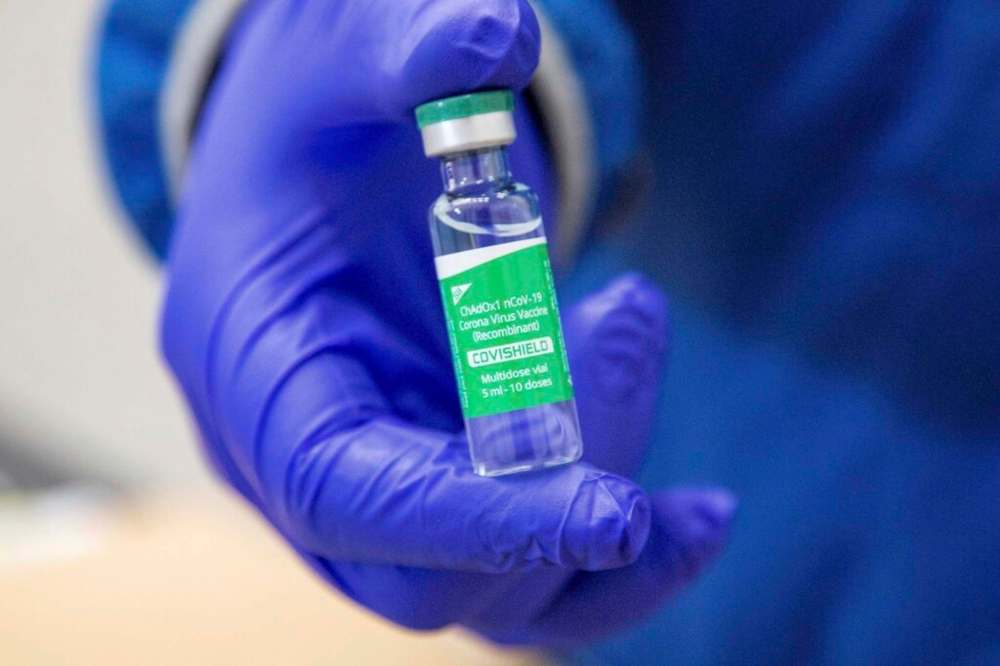AstraZeneca vaccine to arrive in province mid-March
Advertisement
Read this article for free:
or
Already have an account? Log in here »
To continue reading, please subscribe:
Monthly Digital Subscription
$0 for the first 4 weeks*
- Enjoy unlimited reading on winnipegfreepress.com
- Read the E-Edition, our digital replica newspaper
- Access News Break, our award-winning app
- Play interactive puzzles
*No charge for 4 weeks then price increases to the regular rate of $19.00 plus GST every four weeks. Offer available to new and qualified returning subscribers only. Cancel any time.
Monthly Digital Subscription
$4.75/week*
- Enjoy unlimited reading on winnipegfreepress.com
- Read the E-Edition, our digital replica newspaper
- Access News Break, our award-winning app
- Play interactive puzzles
*Billed as $19 plus GST every four weeks. Cancel any time.
To continue reading, please subscribe:
Add Free Press access to your Brandon Sun subscription for only an additional
$1 for the first 4 weeks*
*Your next subscription payment will increase by $1.00 and you will be charged $16.99 plus GST for four weeks. After four weeks, your payment will increase to $23.99 plus GST every four weeks.
Read unlimited articles for free today:
or
Already have an account? Log in here »
Hey there, time traveller!
This article was published 04/03/2021 (1746 days ago), so information in it may no longer be current.
THE first doses of the newly approved Oxford-AstraZeneca vaccine will arrive in the province mid-March, Manitoba public health officials say.
The vaccine was approved Feb. 26 by Health Canada; the first shipment of 500,000 doses arrived in Canada on Wednesday.
Dr. Joss Reimer, medical lead for the province’s COVID-19 vaccine task force, said Manitoba will receive its first shipment of vials sometime mid-month.

An exact date has yet to be confirmed by the federal government, and the province does not know how many doses it will receive, Reimer said Wednesday.
“As soon as we know that, we have an allocation plan that we’re going to roll out, sending doses to pharmacies and physician clinics throughout the province.”
Unlike other approved COVID-19 vaccines, the AstraZeneca shot is fridge-stable and can be stored between 2 C and 8 C.
Johanu Botha, co-lead for the task force, said the province will provide the vaccine to pharmacists and clinics based on regional populations and yet-to-be determined eligibility criteria for the new product.
“We’ve looked at all the clinics and the pharmacists that have applied, we look at the population heat maps across the province. Obviously, we have to look at the supply coming in and we should be ready to deliver to those who are in the queue,” Botha said.
Reimer said deliberations continue as to who will be eligible for the new product.
Health Canada has approved the vaccine for adults over 18 years old. However, the National Advisory Committee on Immunization has recommended AstraZeneca only be given to people under the age of 65.
“Our planning is to look at the oldest age group of the younger age groups, so people probably 50 to 65, and then within that group we are trying to identify who is the highest risk,” Reimer said. “We’re finalizing the details of who that group would be now, and trying to really take advantage of every day that we have available to best analyze the data and get as much clinical input as we can.”
Data from Manitoba shows people between 50 and 64 years old who are on dialysis due to kidney failure or have severe liver damage resulting in cirrhosis are at high risk of severe outcomes due to COVID-19, including hospitalization and death, Reimer said.
“Those have really stood out in Manitoba to be particularly high risk when we look at the people ending up in hospital or those who have died related to COVID,” she said. “As far as the rest of the list, we really want it to be the best possible product that it could be.
“We will release it as soon as we know how much AstraZeneca is coming in, because we want providers to have as much time as possible… to identify who in their practice or clientele would be the top priority.”
Dr. Tim Hilderman, a medical officer of health with a focus on vaccines for the provincial government, said the NACI recommendation follows clinical trials that included limited information on the efficacy of the AstraZeneca vaccine in people 65 or older.
However, the vaccine has been distributed widely in other countries, and emerging data from the United Kingdom has shown more than 70 per cent effectiveness after a single dose in people over 70.
The AstraZeneca vaccine also requires two doses, preferably 12 weeks apart, and has been shown to be about 60 per cent effective in clinical trials. However, additional data analysis has shown administering the second dose at 12 weeks increases effectiveness to more than 80 per cent, Hilderman said.
“When you’re comparing vaccines that were used under different circumstances, in different clinical trials, in different populations, it’s really very difficult to say with certainty one is superior to the other,” he said.
When it comes to variants of concern, there are some coronavirus mutations that may be able to “escape” the immune response produced by a vaccine, but Hilderman said it is still too early to say how significant the decrease in effectiveness is.
The doctors said they are confident in the safety and effectiveness of all Health Canada-approved vaccines, and said Manitobans should take the first vaccine made available to them.
Unlike the Pfizer and Moderna vaccines, which use messenger RNA technology, the AstraZeneca vaccine uses viral vector technology. Neither vaccine technology contains the COVID-19 virus, public health officials said.
danielle.dasilva@freepress.mb.ca

Our newsroom depends on a growing audience of readers to power our journalism. If you are not a paid reader, please consider becoming a subscriber.
Our newsroom depends on its audience of readers to power our journalism. Thank you for your support.


